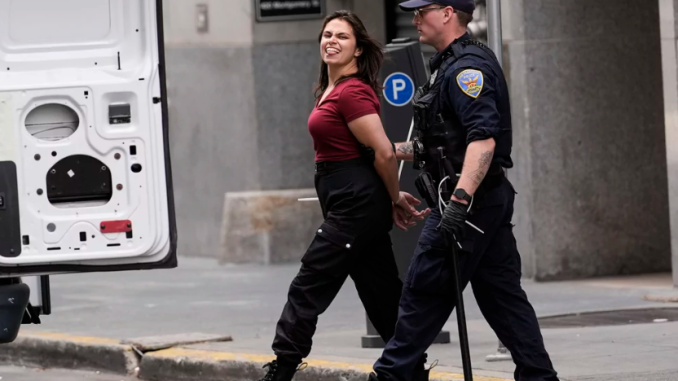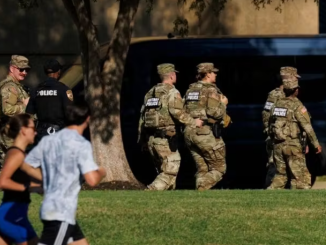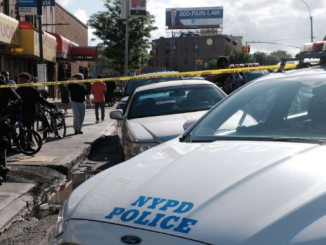
Police staffing in the Golden State has hit a 30-year low, according to an analysis by the Peace Officers Research Association of California, which represents more than 80,000 law enforcement officers. The report comes as a measure placing stricter penalties on crime goes on the ballot this November.
If approved by voters, Proposition 36 indicates arrests and other crackdowns on criminals by police would increase.
{snip}
“We’ve been trying to push out more research in regards to public safety, especially with the election this year,” Brian Marvel, the president of PORAC, which supports Proposition 36, told the Los Angeles Times.
“November will be a critical time in our nation and California as crime and perception of crime is a very hot topic,” he added.

The PORAC report found that in major metropolitan areas across the state such as San Diego, wait times for serious crimes have increased by more than 15 minutes due to police shortages. For less serious crimes, the report indicates wait times increased to nearly two hours.
While high-density areas have been hit by record-low law enforcement levels, rural areas have suffered the most.
{snip}
“People have expressed to me fear and concern based on the lack of the daytime sheriff’s office patrol,” Tehama County District Attorney Matt Rogers told PORAC. “Simply put, if they pick up the phone and dial 911, is someone going to come?”
The rural Tehama County has been forced to end daytime patrols due to police staffing shortages.
The struggle to recruit and retain law enforcement personnel comes as California has struggled with an increase in crime.
In 2022, more property crimes were committed in California than in any other state. That year, the violent crime rate increased by more than 6% while the property crime rate increased by 6.2%.
Marvel told the Los Angeles Times he is worried that the high crime rates over the past several years have led to the decline of people wanting to join and stay in the police force.
{snip}
Gov. Gavin Newsom (D-CA) has signed multiple pieces of legislation into law affecting consequences for criminal behavior. California already allows people to seal records of misdemeanor convictions and arrests, as well as arrests for nonviolent felonies that did not result in convictions. In 2022, Newsom expanded the law to seal records for most felony convictions. The same year, California became the first state in the nation to ban prosecutors from using rap lyrics as evidence of gang activity.
Critics say the state’s laws on crimes such as shoplifting have incentivized an increase in criminal behavior.
Prior to the summer of 2021, stealing merchandise worth $950 was typically worth only a misdemeanor in California. According to the Hoover Institute, law enforcement and prosecutors are highly unlikely to target misdemeanors. Three years ago, Newsom signed another shoplifting bill into law that made shoplifting a felony. Critics said that because the felony was only applicable if shoplifting was carried out by an organized ring with the intent to sell the stolen goods, it would fail to target individual shoplifters, who they say are responsible for the majority of criminal activity in the state.
However, some California progressives think the state’s crime laws are too tough.
State Assemblyman Isaac Bryan, a Democratic member of the Legislative Black Caucus, has advocated legislation that would restore voting rights to convicted felons.

{snip}
“This report doesn’t highlight the amount of money paid out from police brutality lawsuits or speak to money spent on military equipment,” the progressive California lawmaker told the Los Angeles Times. “It tells the story that the authors would like to tell but doesn’t tell a story that is created from original, thoughtful, and rigorous analysis.”


